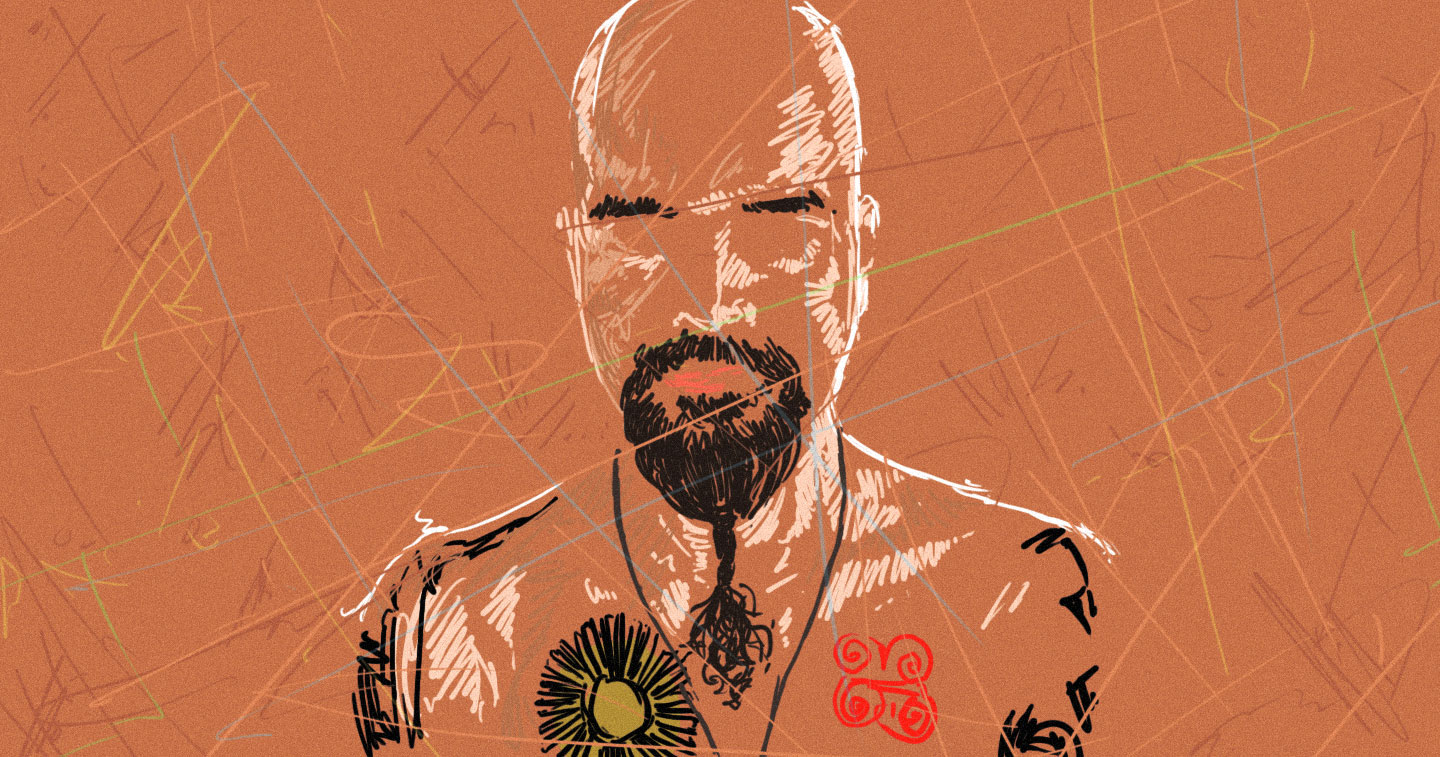“Ikaw ay nanliliit
Ligtas ka ba sa rehas
Bakit ka nakapiit
Bakit ka tumatakas?”
MANILA, PHILIPPINES– I once saw Dong Abay perform at concert grounds of ETON Centris sometime in the last five years.
I did not know that it was him at the time. To my kolehiyala self, he was merely a performer that captured the crowd wearing nothing but the ink on his skin, and the distressed denim that covered him waist down. Who could have been that man that made the crowd go will at the sight of his appearance?
The identity of this enigmatic man was only revealed later that night, as I was reviewing the footage in the same room as my parents and they were quick to identify him as the Dong Abay. To my ignorant self (and kids my age), Dong Abay was the founder and lead vocalist of the 90s band Yano whose chart-toppers were Banal na Aso, Santong Kabayo (Holy Rascals, Saintly Horses); Esem (a wordplay on SM); Senti (Short for sentimental).
Immediately, I was swept into a lecture of the culture of bands of my parents’ youth. For the Generation X (and everyone else that was touched by pop culture in 1992), Yano provided the anthem that paved their juvenile years.
https://youtu.be/-m9Cy1W2Uys?t=38
In the last decade before ushering a new millennium, one of the hits by Yano was Trapo which goes with the lyrics: Ang hirap mong hulihin, lahat kaya mong bilhin.
Trapo—which is an abbreviation of traditional politician—was a term coined in the ‘90s by student groups which involved the likes of Pasig City’s Noel Medina, now president of the civic group Tambuli ng Pasig (Clarion of Pasig).
One of Abay’s performances on videotape showed his banter with the host and he quipped that it actually means “rag” from the Spanish word trapo.
From all the videos that have been spoon-fed into me that night, it made all sense that the crowd roared with such excitement upon seeing him.
The same performance made me realize the difference decades make in an artist’s life: The topless Dong Abay I saw is the same Dong Abay wearing a Crispa shirt in 1995; the bald and inked performer is still the Dong Abay with a haircut a la Rizal from my parent’s youth that championed human rights through the social commentary of his music.
More recently, Abay’s name was dragged down when he was accused of being one of the masked rioters during the January 6 storm on the United States Capitol. However, it became apparent that he was at the Philippines at the time of the incident.
However poor in verification skills the reporters have, the author is of the opinion that Abay’s innate artistry will never put him in such a situation that is being accused of him.
One only needs to look at his discography, and his life’s work to recognize that Abay is a man of peace and progress.
So much so that his profound lyrics and showmanship set Yano’s legacy that even in today’s climate of abundant music, theirs is recognizable when it plays on the radio, long after his band is defunct.









